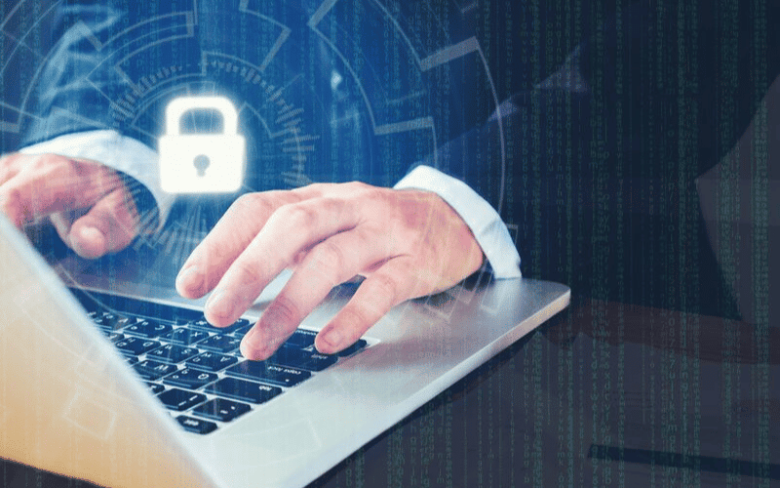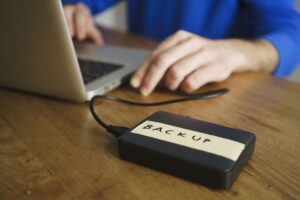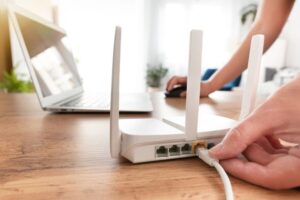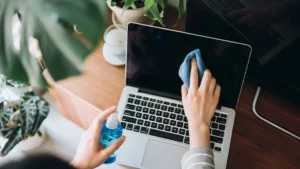Smartphones, laptops, tablets, and smart homes are essential digital devices in our daily lives. As our reliance on technology increases, so does our vulnerability to cyber threats. Hackers are constantly investigating how to compromise devices, steal personal information, steal money, and even take over systems. As your life becomes increasingly connected, it’s growing important to understand how and why these dangers occur. The first step to protecting your devices from hackers is understanding the risks.
Use Strong Passwords on All Your Devices
A common mistake is using weak or identical passwords on multiple devices or online accounts. Hackers sometimes use automated systems to guess passwords. If your password is easy to guess or the same for multiple accounts, they’re more vulnerable. One of the best ways to protect yourself is to ensure you use a strong, unique password for every account and device. Strong passwords typically consist of a combination of letters, numbers, and symbols and don’t contain obvious terms or patterns. A password manager can help you securely manage your passwords and develop excellent password habits.
Avoid Suspicious Emails and Links
Hackers often use phishing attacks to gain access to devices and accounts. These attacks usually take the form of emails, messages, or pop-ups that appear authentic but contain dangerous links or attachments. If you click on one of these URLs, the hacker can install malware, steal your login credentials, or trick you into providing personal information. Always check the source of the communication before clicking on a link or downloading anything to avoid becoming a victim. Pay particular attention to emails that suddenly appear, requesting immediate action or requesting private information.
Install a Reputable Antivirus Program
Antivirus software is designed to detect, block, and remove malicious threats from your system. While current operating systems have built-in security measures, a good antivirus program offers additional protection. These programs are continuously updated to protect against the latest viruses, spyware, ransomware, and other threats. Many antivirus programs also offer features for safe browsing, phishing detection, and firewall protection. Using a reliable antivirus program and keeping it updated will keep your devices safer from both known and emerging threats.
How to Protect Your Home Wi-Fi Network
If you don’t properly secure your home Wi-Fi network, hackers can easily gain access. Users nearby can easily hack your router if it uses default usernames and passwords or lacks sufficient encryption. Once hackers gain access to your network, they can monitor your activity, steal your data, or spread malware to other devices. Changing your default login credentials, enabling strong encryption like WPA3 or WPA2, and regularly updating your router’s firmware are all crucial steps. For better protection, consider blocking the network name (SSID) and limiting the number of devices that can connect to it.
Be Careful When Using Public Wi-Fi
Connecting to public Wi-Fi networks (such as those in cafes, airports, and hotels) is easy but also dangerous. Often unsecured, these networks make it easier for hackers to steal your data or establish seemingly legitimate mobile hotspots. If you must use public Wi-Fi, don’t use it to access your email, bank accounts, or other sensitive information. Using a virtual private network (VPN) is a more secure way to protect your online activity from prying eyes. VPNs encrypt your traffic and keep it private. Be aware of the risks when connecting to unknown networks and avoid them if possible.
Restrict App Access and Permissions
Many apps and services require more data and device resources than they actually need. By granting unnecessary permissions, hackers can access your data or spy on you without your knowledge. Regularly check and change the permissions of apps on your phone or computer. For example, a simple flashlight app doesn’t need to know your location or identity. Grant only the permissions needed to function and deny the rest. This feature makes it harder for apps and third parties to collect personal information, protecting your privacy.
Monitoring Your Devices for Unusual Activity
By looking for signs of unusual behavior, you can detect problems early. Think of unprovoked pop-ups, strange messages, apps installed without your permission, or slower-than-normal performance. Additionally, monitor the warnings and notifications from your antivirus software regarding logged-in accounts. If you notice anything unusual, it’s crucial to react immediately. You might need to run a virus scan, change your password, or roll back your device to a previous version. Detecting problems early is the best way to prevent them from becoming serious.
Conclusion
Preventing hackers from gaining access to your devices is more important than ever. With more and more threats targeting ordinary people, taking measures to protect your devices is essential as part of your digital life. To protect yourself from hackers, use strong passwords, update your software regularly, be careful while browsing the internet, use antivirus software, and connect to secure networks. By following these tips and staying informed about current threats, you can significantly reduce your risk of becoming a victim of a cyberattack. Prevention is better than cure. Time spent protecting your devices today could save you a lot of trouble tomorrow.
FAQs
1. Is free antivirus software sufficient?
Some free antivirus software offers basic protection, but commercial antivirus software often includes more advanced features, such as real-time scanning, ransomware protection, and excellent customer service.
2. Are apps potentially harmful?
Yes, malicious apps can be used to steal your data or spy on you. Always buy programs from reputable sources, read reviews, and check permissions before installing them.
3. How often should I update my apps and devices?
Updates should be installed as soon as they are available. Most updates contain important security fixes that protect your device from known vulnerabilities.
4. Can I use a VPN on public Wi-Fi?
Yes, a VPN encrypts your data, making public Wi-Fi more secure. However, it’s best to avoid accessing truly private information on public networks.
5. What should I do if I think someone has hacked my device?
If the problem persists, disconnect from the internet, run a full antivirus scan, reset your password, and consider factory resetting your device.




